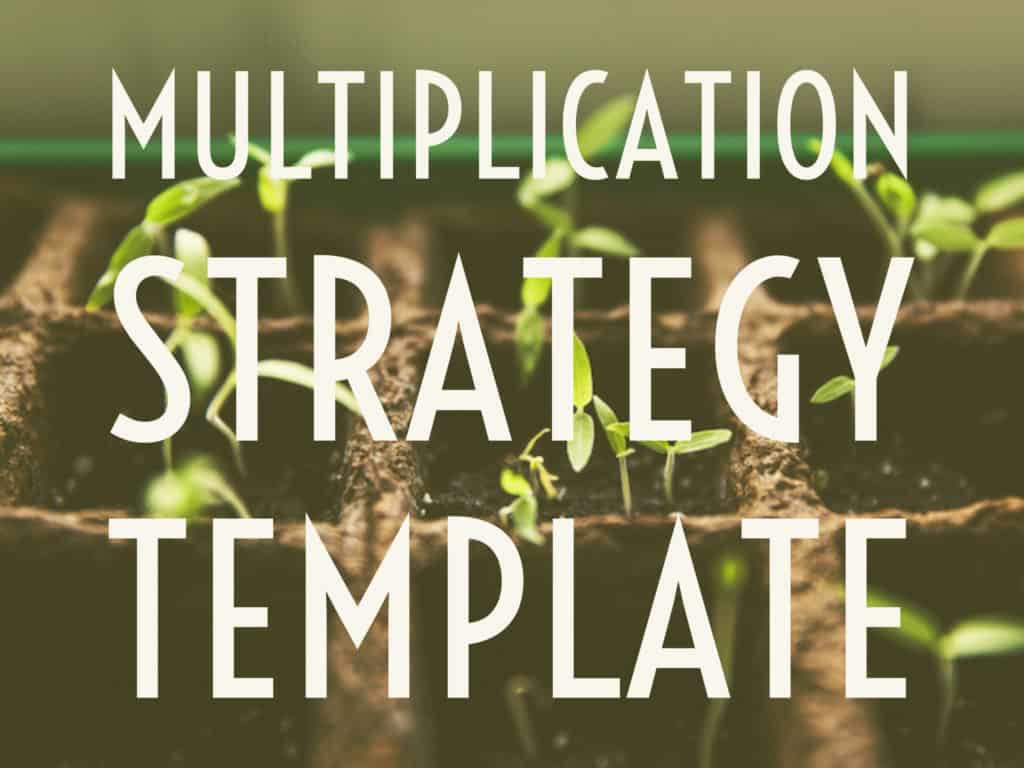What Is Church?
 At Passion for Planting, we’re honored to equip leaders to plant healthy, reproducing churches. For twenty years, we’ve helped plant churches that plant churches, with 321 in our family tree. And we have vision for planting hundreds more over the next decade. If we’re going to accomplish this vision, one thing we’ll need to clarify is the definition of a church. Have you thought much about that question? What constitutes a church?
At Passion for Planting, we’re honored to equip leaders to plant healthy, reproducing churches. For twenty years, we’ve helped plant churches that plant churches, with 321 in our family tree. And we have vision for planting hundreds more over the next decade. If we’re going to accomplish this vision, one thing we’ll need to clarify is the definition of a church. Have you thought much about that question? What constitutes a church?
We like answering that question with a definition Bobby Harrington and leaders from Discipleship.org developed several years ago. They examined scripture and defined a church this way, “A spiritual family growing in surrendered obedience to all the teachings of Jesus Christ who gather together regularly under Biblically recognized leadership for the purpose of fulfilling the great commission (making disciples) with a great commandment heart (love God, love people).”
Based on that definition, the small group of disciples gathered under a Baobab tree in the Kenyan Bush is just as much of a church as the mega churches scattered around Metro Dallas. How thankful we are that God uses both types of churches for his Glory!
Our staff recently read the book Acts and The Movement of God by Steve Addison, which reminded us how reproducing churches are at the center of disciple making and church planting movements around the globe, even if they never grow larger than 50 people. These churches aren’t focused on drawing crowds of attenders, but are focused on making disciples who make disciples. Since their church model is so simple, they are able to reproduce like rabbits.
Churches with disciple-making as their core mission and growth engine are the types of churches we’re focused on planting. Some will grow to be large mega churches, and some will never break the 200 mark. We’re fine with that as long as every church is involved in reproduction. How about you? Is your church ready to start reproducing? If so, check out the resources we’ve included in this month’s newsletter to help you take your next step towards church reproduction. Enjoy!
-Patrick Bradley, Director of Operations
May 2024 – Content
- Church Circle
- Church Multiplication Strategy
- The Collaboration Key
- Church Planter Distance Residency
Church Circle

If your church has a desire to plant churches, it’s essential that you have a clear understanding of what a church is. If you don’t, how will you know if you’ve actually planted a church? Think: do you have a clear understanding of what a church is? For instance, when does a group of people studying the Bible transition from being a small group to being a church?
In an effort to help disciple makers and church planters answer that question, NoPlaceLeft developed the ChurchCircle tool. It offers nine key characteristics of a church, so a group of disciples can evaluate themselves by these characteristics to know whether or not they are exhibiting the characteristics of a New Testament church. Equipped with this tool, some leaders within your church may be inspired to become church planters as they realize what a church is at its core. Check out the tool and then come up with your own biblically faithful definition of a church, so you can have a clarity on what a church is and then empower leaders to start new ones.
Church Multiplication Strategy
When your church plants reproducing churches that plant reproducing churches, multiplication is the result. This won’t happen by accident. It requires intentional planning, constant vision casting, and training. Movement leaders know that hope is not a strategy. You can’t just wish something into existence. Yes, sometimes God blesses us when we don’t deserve it and moves in spite of ourselves, but more often He works through the plans we develop and implement with His guidance.
Proverbs 14:15 says, “A simple man believes anything, but a prudent man gives thoughts to his steps.” Hoping your church will multiply some day puts you in the category of the simple man, but developing a multiplication strategy reveals your prudence. Use Passion for Planting’s free Church Multiplication Strategy Template to help you plan and pursue your church’s multiplication endeavor.
The Collaboration Key

Several years ago, when Exponential studied the characteristics of multiplying churches, they found that a common trait shared among these churches was their value for being a part of a greater family of churches. They found that these churches valued collaboration in church planting instead of trying to do it all on their own.
This is what we see happening in the New Testament – churches collaborating to support Paul’s church planting mission. We encourage all church planters to follow his example and be part of a network. There are many out there. Here’s one place to search for a network (not an exhaustive list, but lots mentioned here).
Recently, Passion for Planting has collaborated to establish a new decentralized network called Renew Movement. This new church planting network exists to help churches collaborate together to plant healthy, reproducing, Biblically sound, disciple making churches. If you resonate with our 6 distinctives, we’d love to talk with you about how Renew Movement could get you and your church into church planting. You’re just one decision away.
Bottom line: don’t plant alone. Connect with other churches to do more together than what you can by yourself.
Church Planter Distance Residency
Have you identified a leader to send out to plant? Are you that leader? We connect with church planters on a regular basis that are feeling called to plant, but lack the know-how, experience, and training necessary to turn that vision into reality. That’s why we developed a Distance Church Planter Residency program.
You will be equipped to start healthy, reproducing churches in your local context. No need to uproot and move to a new city to participate in our training. Leaders get practical training on how to make disciples and organize them into a spiritual family on mission for Christ. To learn more about how our cohort can equip you or another leader you know to plant a healthy, reproducing church, visit our residency webpage. We’re now accepting applications for our 2024-2025 cohort, which starts in September. Apply today!


